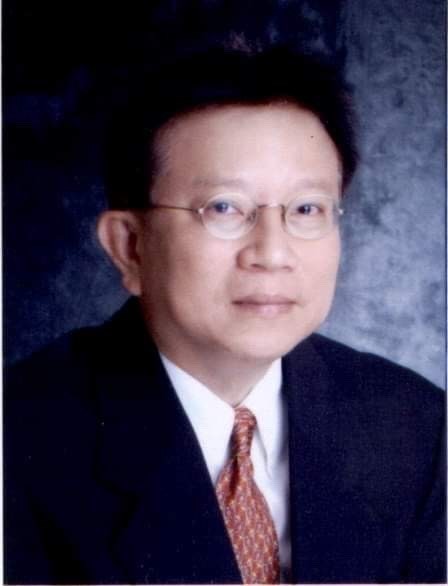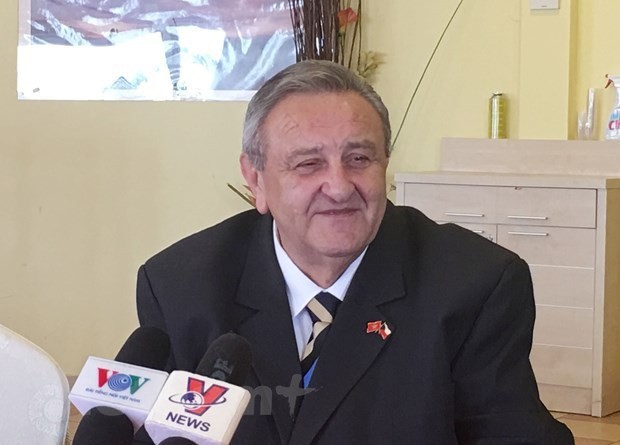
Foreign scholars hail Viet Nam’s foreign policy
Latest
 |
| Dr. Nakorn Serirak, a lecturer from the Political Academy of Khon Kaen University of Thailand (Source: VNA) |
In an interview granted to Vietnam News Agency’s correspondents in Thailand on the occasion of Viet Nam’s National Conference on Foreign Affairs, Dr. Nakorn Serirak, a lecturer from the Political Academy of Khon Kaen University of Thailand, said Viet Nam's foreign policy also contributes to maintaining peace in Southeast Asia and the world.
Serirak, who is also the co-author of a newly published book entitled “45th anniversary of Viet Nam – Thailand relations (1976-2021): a historical journey", said during the Viet Nam War with France and the US, Viet Nam's foreign policy focused on improving international understanding of Viet Nam's struggle for independence against imperialism and also the desire for peace of the Vietnamese people, and resulted in gaining more understandings from most nations.
The current foreign policy of Viet Nam is developed from the policy initiated since the country's Doi moi (renewal) process in 1986, which overall seeks good relationships with all countries around the world and involvement in peacekeeping in Southeast Asia and world politics, he stressed.
The world has gained a clearer and more concrete view of Viet Nam's foreign policy when the Secretary-General of the Communist Party of Viet Nam clearly described that Viet Nam's foreign affairs from the past till the present reflects the uniqueness of the Vietnamese identity, that is, like the nature of bamboo where strength and compromise integrally blend together, he added.
Viet Nam's success in many aspects seen by the world today is another confirmation of the best practices of the national development policy, including the current foreign policy known as bamboo foreign policy, he said.
Meanwhile, both Honorary President of the Czech-Vietnamese Friendship Association Marcel Winter and President of the Hungary - Viet Nam Friendship Association Botz László, said Viet Nam's foreign policy is the foundation for strengthening friendship cooperation, affirming that Viet Nam's foreign policy and contributions have helped improve Viet Nam's position and prestige in the international arena.
Taking to Viet Nam News Agency’s correspondents in the Czech Republic, Winter stressed that Viet Nam has achieved great diplomatic successes in the world, especially at the United Nations (UN).
According to Winter, Viet Nam has always been very active as a non-permanent member of the UN Security Council. The country has been also very successful when participating in the UN peacekeeping missions in South Sudan, where Vietnamese military doctors are working effectively.
The prestige of Viet Nam, especially in ASEAN, is the result of Viet Nam’s very successful role as the ASEAN Chair, even in the context of the COVID-19 pandemic, he stressed.
 |
| Honorary President of the Czech-Vietnamese Friendship Association Marcel Winter (Photo: VNA) |
Sharing Winter’s view, László said thanks to drastic policies, strict discipline as well as the trust of the Vietnamese people in the State, the success of the country in the fight against COVID-19 has significantly contributed to Viet Nam’s rapid economic development in the context of the pandemic, thus helping improving Viet Nam's international reputation.
According to him, Viet Nam's foreign policy within the framework of ASEAN is very effective, while great strides in realising the EU-Viet Nam Free Trade Agreement (EVFTA) have created a motivation for expanding trade relations between Viet Nam and Hungary.
Winter suggested that specific orientations are needed to further strengthen bilateral friendship cooperation and meet the need of the business circles of both countries.
For his part, László said it is necessary to pay more attention to introducing and promoting the Vietnamese culture in Hungary.

















